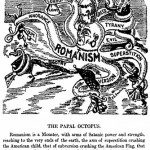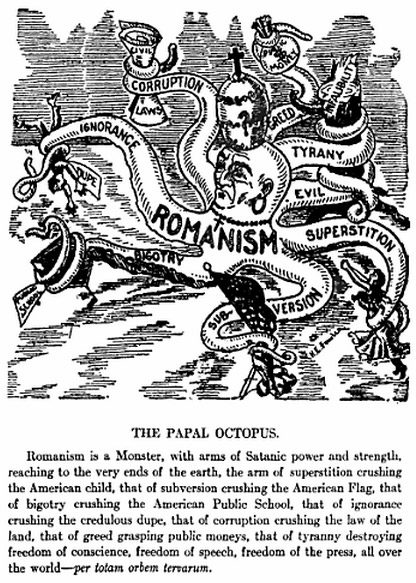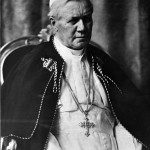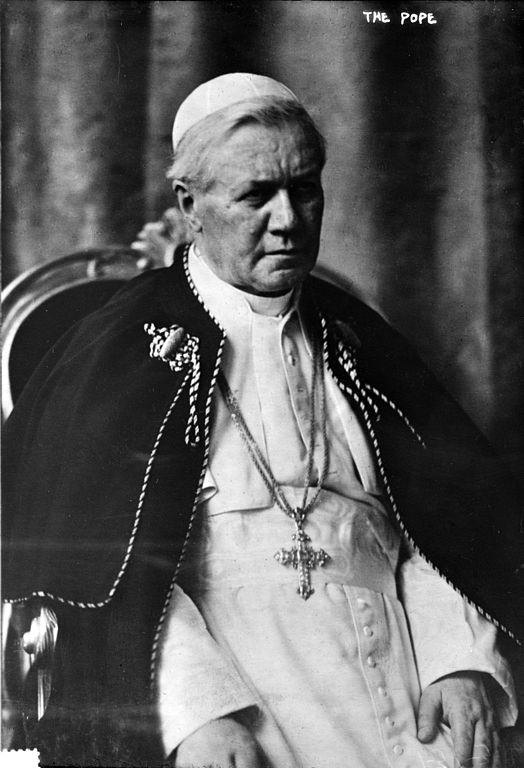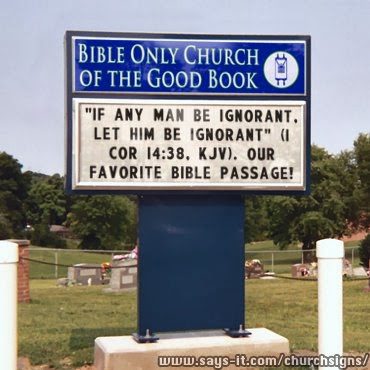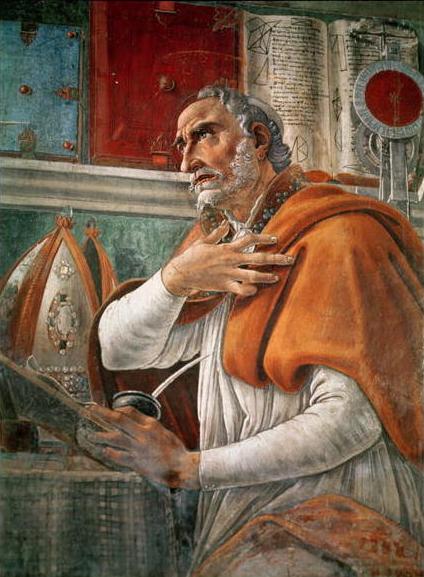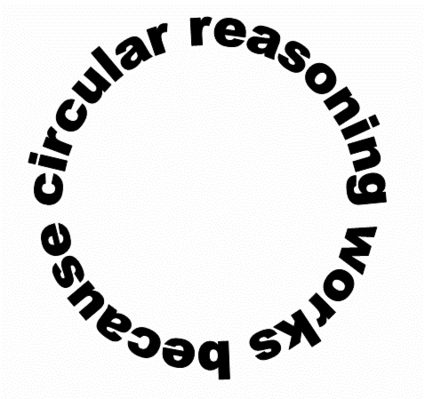
Steve Bannon: currently challenging President-elect Donald Trump for the coveted, prestigious honor of being “The Most Hated Person in America” (i.e., by liberals) [Wikimedia Commons / Creative Commons Attribution-Share Alike 3.0 Unported license]
*****
Mark Shea: the guy who used to specialize in writing excellent and insightful Catholic apologetics (which continue to be excellent and very worthwhile, on the rare occasion that he still produces such material), has been on a relentless campaign to Tarnish and Trash Anything Trump. Mark has all sorts of illogical associations and fallacies in his brain along these lines. For example, for him, the Trump voter (including even the late jumpers on the bandwagon):
1) . . . must be a racist, or is at the very least forever tarnished and fundamentally compromised by being associated with the profound racism that is supposedly entailed in the very bone marrow of the Trump movement;
2) . . . must somehow not really be pro-life. Hence, Mark has taken to distinguishing between those who remain (by his graces) “anti-abortion” if they have the slightest association with Trump, while insisting that they cannot possibly be full-fledged, bona fide, ethically consistent “pro-lifers.” I could go on and on, because Mark’s false equations and propagandistic slogans (more numerous than the electrons in the universe) go on and on, but you get my drift.
His latest hysterical, uber-polemical crusade has to do with Steve Bannon, the Executive Chairman of the now hugely influential Breitbart News enterprise, who was recently named chief strategist and senior counselor in the now-being-formed Trump administration. My strong objection to the material he has been putting out about Bannon is simple:
If Mark wants to make serious accusations about a person supposedly being a profound racist and bigot; indeed, KKK-type white supremacist (that’s how far this nonsense has gone), then he needs to back up his claims with documentation, and he isn’t doing that at all, where Bannon is concerned. His constant denigration of any Trump voter as somehow tarnished in terms of pro-life commitment is also hyper-ludicrous.
Certainly, any thinker with even slight fair-mindedness can see that it is imperative (indeed, elementary ethics and methodology) that a person making a serious charge needs to document that there is some remote factual basis to the charge, other than that a bunch of media liberals claim (and repeat ad nauseam) that Bannon is a profound racist (minus any documentation); therefore he “must” be one. Let’s now look at what Mark has been claiming, and see that he has offered no rational basis for it at all.
Let me preface the following by saying that I know very little about Steve Bannon. Prior to the Trump campaign I knew virtually nothing about him. So I don’t come into this as some sort of prior advocate. What I do know is that any person has the right to a fair examination. If charges of anti-Semitism or racism are made, then they need to be established by factual documentation, not mere innuendo and repeated talking-points and mantras. I do know for sure (being a longtime political junkie) that the liberal media and Democratic Party pull out their “racism” card every four years, and make out that all Republicans, and especially the GOP candidate that year, are racists and a host of other ills. It’s their standard policy.
The anti-Semitic charge is quickly disposed of. Breitbart Senior Editor Joel Pollak is an Orthodox Jew. So is Ben Shapiro, who worked at Breitbart for a long time, before departing over his opposition to Donald Trump. Breitbart’s co-founder and CEO, Larry Solov, is also Jewish. Andrew Breitbart himself (who died in 2012) was Jewish (this is obviously no WASP operation). According to Breitbart’s Wikipedia bio:
He was raised Jewish; his adoptive mother had converted to Judaism when marrying his adoptive father. He attended Hebrew school and had a bar mitzvah. . . . Andrew would remain proudly Jewish, . . . Breitbart later said of his profession: “I’m glad I’ve become a journalist because I’d like to fight on behalf of the Israeli people… And the Israeli people, I adore and I love.”
The Wikipedia bio of Bannon stated:
Bernard Marcus of the Republican Jewish Coalition, the Zionist Organization of America, Shmuley Boteach, and David Horowitz defended Bannon against the anti-Semitism allegations.
Bannon had been a member of the board for Breitbart before Breitbart’s death, and was his close friend. I guess it makes sense for two Jewish guys (Breitbart and Solov) to have a rabid anti-Semite on the board of their company, and for one (after the other died) to agree to make this person executive chairman of the company (himself being the CEO). Yet we have the all-knowing Lena Dunham sending a message to House Speaker Paul Ryan, that Bannon was “an anti-Semitic white supremacist” and we have Late Night host Seth Meyers pontificating that “he’s a white nationalist and an anti-Semite.”
But back to Mark Shea, who was quick to denounce Bannon as soon as he was added to Trump’s administration, with the headline, “Steve Bannon, Alt Right Racist Honcho, is now Trump’s Chief Strategist”. He added, in one of his classic short swipe-posts (I cite the whole thing):
This is who the Alt Right is. This is what they do. This is what the anti-abortion-but-not-prolife Right will spend the next four years fighting the Church to defend instead of the unborn.
The inquiring reader, will, of course, follow Mark’s link, looking for some — any — evidence that Bannon is some terrible KKK Imperial Wizard. And what do we find? It’s a site called Rage Against the Minivan, run by a woman named Kristen, who is “a regular contributor to Huffington Post and Quiet Revolution.”: both, of course, left-wing publications. Kristen wrote in the link Mark provided:
As many of you know, this year my family was targeted and harassed by a white-supremacy group known as the “alt-right” for having adopted black children.
Then she notes that Bannon is “one of the leaders of the alt-right movement” and assumes that this proves that, therefore, he is in favor of what happened to her family.
This is, of course, the fallacy of the false analogy or false equivalence. The Wikipedia entry on the former provides an example:
Person A: “I think that people can have some affection for their cultural heritage.”
Person B: “You’re just like Hitler!”
In the above example, Person B has evaded a reasoned discussion by tarring Person A with an irrelevant association to an idea that Hitler used. Of course no one person is identical to another to the extent that their proposals can be disparaged by a mere reference to that other person. It is a form of ad hominem: Attacking the messenger, rather than the message.
Another way of putting it is:
- A has the characteristic of B.
- C also has the characteristic of B.
- Therefore, A = C
Now, to apply the fallacy in the way it is being used by anti-Trumpists and Bannon-bashers:
- President Barack Obama (A) says that he loves America (B).
- Ku Klux Klan members (C) also say that they love America (B).
- Therefore, President Barack Obama (A) and the KKK agree on B, he must think like KKK members (C) in all respects (A = C).
So much for that pseudo-“argument.” Let’s see if Mark can do any better. On November 15th, he called Bannon “an alt-Right racist and anti-Catholic” (and repeated the charge in another article of the same date, and again on November 17th). That’s interesting, seeing that Bannon is a practicing Catholic. So is Kellyanne Conway. Together, they both ran Trump’s campaign. Close advisers Newt Gingrich and Rudy Giuliani and Chris Christie are also Catholics, as are strong supporters Laura Ingraham, Judge Jeanine Pirro, Sean Hannity, Pat Buchanan, and the late Phyllis Schlafly. Sounds profoundly “anti-Catholic” to me! Where does Mark Shea come up with such tripe as this? Obviously, because it is a lie in the first place, he can’t document it, even if he troubled himself to actually attempt to back up his ludicrous claims with factual evidences.
What else does Mark have in his impressive arsenal of anti-Bannon whoppers? On November 15th, he stated:
Any prolife movement worth its salt should be protesting this man’s appointment and everything it signifies. . . . “Prolife” Trump supporters will, again and again, divert their time, energy, and credibility away from defenses of the unborn to defenses of Alt Right racist filth or whatever else Trump actually cares about. . . .
Be more prolife, not less. Oppose abortion and racism.
He based his conclusion upon citing longtime Trump-opposing National Review, using a bunch of “alt-right” associations, along the lines of the false analogy and false equivalence fallacies, already described above.
On November 16th, Shea opined:
Lots of Trump supporters are expressing surprise (and resistance) at the prospect that Trump’s Chief Strategist is a supporter and advocate of white ethno-nationalism (aka racism).
He is.
Bannon has bragged that he made Breitbart a “platform for the Alt Right. . . .
Here is a sample of white identity thought published in Radix recently, . . . [followed by long citation] . . .
Note that when you click the second link above, you find that self-description for a whole slew of Alt Right organizations. That’s because white identity is not an accidental feature of Radix and a couple of outliers, but the fundamental ideology of the Alt Right–the Alt Right Bannon boasts of supporting, the Alt Right of which he is now the most powerful and prominent representative on Planet Earth as Chief Strategist to Donald Trump. . . .
My point is this: There is not a reason in the world prolife Christians should be putting themselves out to defend this racist filth. If they are serious about abortion being their core issue they should, if they are strapped for time and energy, simply be focusing on defending the unborn. If they have time and energy to spare for other things, they should be protesting the racism of the Alt Right . . .
Once again, Mark engages in massive fallacious “reasoning” by employing the by-now time-honored false equivalence fallacy. If one goes to the Radix article, one discovers that Bannon is never even mentioned in it. Why is it, then, that Mark thinks this is some sort of compelling proof of Bannon’s nefarious racist wickedness? Moreover, if we follow the link to the site’s “AltRight Archive” we find that it lists scores and scores of names, but not Steve Bannon! It even has an article specifically disavowing any connection to Steve Bannon (more on that below). So once again, Mark is firing blanks. It gets very wearisome having to point this out, but it’s good to document it for the record.
Mark raves again on November 17th:
It is fascinating to watch “prolife” Trump supporters now wasting their days and nights striving with might and main to nuance, deny the existence of, excuse and defend the flaming obvious racism of the Alt Right Bannon champions instead of their supposed “core non-negotiable” issue of the sanctity of human life.
But the clincher of Mark’s anti-rational, hyper-polemical propagandizing is his November 18th article, entitled, “What the ‘Prolife’ Christian Trump Supporter is Now Committed Body and Soul to Defending.” He gives a link to an audio piece by National Public Radio (NPR), then opines:
What “prolife Christian” Trump supporters will spend the next four years nuancing, denying the existence of, excusing, and defending.
This is not normal. This is not right. This is not American. This is not Catholic. . . .
I will resist this Alt Right filth to my dying breath.
So what was the NPR piece about? Well, it is an interview with “alt-right leader” Richard B. Spencer, who truly is a white supremacist. NPR itself wished to do a little tarring with a broad brush, utilizing the good ol’ fallacy of false equivalence yet again. One simply has to listen to it, assume (with no evidence whatever) that Bannon is somehow associated with this abominable bilge, or would sanction it, and voila!: Bannon is the KKK Grand Imperial Wizard! That’s apparently how liberals and their admirers like Mark Shea “think” these days. Journalistic ethics (almost an oxymoron anymore) be damned! Facts be damned! Logic (what’s that?) be damned!
Today, Breitbart senior editor Joel Pollak (remember, the Orthodox Jew?) replied to this outrageous nonsense in his article, “National Public Radio Falsely Links Breitbart to White Separatists.” He wrote:
In it, [Kelly] McEvers suggests that because Breitbart News Executive Chairman Stephen K. Bannon once told Mother Jones that Breitbart had become “the platform for the alt-right,” Bannon and Breitbart therefore share to the racial separatist ideas of Richard Spencer, one of the people involved in the alt-right movement. [there is our beloved fallacy, again!]
McEvers does not provide any actual evidence that Bannon or Breitbart share Spencer’s ideas. Moreover, she does not even show that Breitbart has ever published anything supportive of Spencer’s ideas. And — crucially — she does not inform listeners that there is no such evidence. . . .
Listeners are left to conclude — deliberately, it seems — that Bannon supports “white identity politics” — as well as swastikas and the KKK, to which she refers in her interview with Spencer.
McEvers apparently feels no responsibility to verify whether Bannon or Breitbart actually shares or promotes any of Spencer’s views. She does not even quote or consult NPR content that suggests the opposite. [an interview with Joel Pollak from just two days earlier]
If NPR or Mark Shea think there is some — any — connection between Bannon and this wingnut Spencer, why don’t they prove it? Is that too much to ask? There is no proof here! None! Zero, zilch, zip, nada. But if they’re too lazy and irresponsible to do that — even attempt it — then I will disprove it myself. It’s not hard to do. With Google search and massive cross-linking these days, anyone can do it. As it is, I ran across (almost by accident) the compelling disproof on a site that Mark Shea sent his readers to (noted above), in an attempt to make out that Bannon is a racist: Radix.
Richard B. Spencer himself (that’s called a “primary source,” folks) put out a press release on that site, called, “Clinton’s Attack on the Alt-Right” (8-24-16). He states, in no uncertain terms:
Secretary Clinton, no doubt, intends to use guilt-by-association to tie the Alt Right to the Trump campaign and its CEO, Steve Bannon. There is no basis for these accusations. Neither Spencer nor anyone else at NPI has any involvement with the Trump campaign, Steve Bannon, or Breitbart.com. [my added bolding emphasis]
While Spencer has written favorably about both Trump and Breitbart, he has consistently emphasized they are not exactly the Alt Right.
As Spencer explained,
Trump and Bannon deserve credit for asking “is this good for us?” when considering issues of trade, immigration, and foreign policy. This is far preferable to Clinton’s choosing her policies based on the interests of foreigners and financial interests. However, as civic nationalists, their idea of “us” is the people who occupy the current multiracial landmass known as the United States. The Alt Right fundamentally differs from Trump’s civic nationalism by considering “us” to be all people of European ancestry across the globe.
Edmund Kozak wrote at PoliZette (updated 11-16-16):
The reason for this barrage of Bannon-bashing is painfully apparent. Trump’s victory having proved that the “racist” label no longer carries the power to shame their opponents into silence, the Left is seeing if they fare any better with the more specific “anti-Semitic” and “white nationalist.” . . .
“This is what the media do, this is what the Establishment does — they throw out a bunch of innuendo to try to smear someone,” Breitbart Senior Editor Joel Pollak said on CNN Tuesday night. “The most offensive thing Steve Bannon ever did was win the White House with Donald Trump,” Pollak said. . . .
Clearly, the notion that Breitbart, under Bannon’s stewardship, became some sort of flagship publication for the white nationalist, anti-Semitic voices on the Alt-Right is patently absurd.
There are indeed white nationalist, anti-Semitic voices on the Alt-Right, but a mere thirty seconds spent on those openly white nationalist and anti-Semitic websites — such as Raddix Journal and Counter Currents — should be more than enough for even the most biased observer to realize that Breitbart is most certainly not one of those voices.
The Left’s collective freak out over Bannon might be hilarious — were it not so dangerous. Continuing to associate Trump, his supporters, and conservatives in general with swastika-branded neo-Nazis is only going to further justify the anti-Trump violence that has erupted in cities across America.
In conclusion, why not read Steve Bannon’s actual words for a change? I know that’s a novelty these days, but I think folks could come to like it, with little practice. Here are extensive excerpts from an excellent transcript of remarks he delivered at a conference in the Vatican in the summer of 2014. They are quite in line with Catholic social teaching, and indeed, my own personal belief in distributism:
One thing I want to make sure of, if you look at the leaders of capitalism at that time, when capitalism was I believe at its highest flower and spreading its benefits to most of mankind, almost all of those capitalists were strong believers in the Judeo-Christian West. They were either active participants in the Jewish faith, they were active participants in the Christians’ faith, and they took their beliefs, and the underpinnings of their beliefs was manifested in the work they did. And I think that’s incredibly important and something that would really become unmoored. I can see this on Wall Street today — I can see this with the securitization of everything is that, everything is looked at as a securitization opportunity. People are looked at as commodities. I don’t believe that our forefathers had that same belief. . . .
The tea party in the United States’ biggest fight is with the the Republican establishment, which is really a collection of crony capitalists that feel that they have a different set of rules of how they’re going to comport themselves and how they’re going to run things. And, quite frankly, it’s the reason that the United States’ financial situation is so dire, particularly our balance sheet. We have virtually a hundred trillion dollars of unfunded liabilities. That is all because you’ve had this kind of crony capitalism in Washington, DC. The rise of Breitbart is directly tied to being the voice of that center-right opposition.
And, quite frankly, we’re winning many, many victories.
On the social conservative side, we’re the voice of the anti-abortion movement, the voice of the traditional marriage movement, and I can tell you we’re winning victory after victory after victory. Things are turning around as people have a voice and have a platform of which they can use. . . .
[I]t’s incumbent upon freedom-loving people to make sure that we sort out these governments and make sure that we sort out particularly this crony capitalism so that the benefits become more of this entrepreneurial spirit and that can flow back to working-class and middle-class people. Because if not, we’re going to pay a huge price for this. You can already start to see it. . . .
The whole narrative in Washington has been changed by this populist revolt that we call the grassroots of the tea party movement.
And it’s specifically because those bailouts were completely and totally unfair. It didn’t make those financial institutions any stronger, and it bailed out a bunch of people — by the way, and these are people that have all gone to Yale, and Harvard, they went to the finest institutions in the West. They should have known better.
And by the way: It’s all the institutions of the accounting firms, the law firms, the investment banks, the consulting firms, the elite of the elite, the educated elite, they understood what they were getting into, forcibly took all the benefits from it and then look to the government, went hat in hand to the government to be bailed out. And they’ve never been held accountable today. Trust me — they are going to be held accountable. You’re seeing this populist movement called the tea party in the United States. . . .
By the way, even in the tea party, we have a broad movement like this, and we’ve been criticized, and they try to make the tea party as being racist, etc., which it’s not. But there’s always elements who turn up at these things, whether it’s militia guys or whatever. Some that are fringe organizations. My point is that over time it all gets kind of washed out, right? People understand what pulls them together, and the people on the margins I think get marginalized more and more. . . . I think you’ve seen that also with tea party groups, where some people would show up and were kind of marginal members of the tea party, and the tea party did a great job of policing themselves early on. And I think that’s why when you hear charges of racism against the tea party, it doesn’t stick with the American people, because they really understand.
I think when you look at any kind of revolution — and this is a revolution — you always have some groups that are disparate. I think that will all burn away over time and you’ll see more of a mainstream center-right populist movement. . . .
See what’s happening, and you will see we’re in a war of immense proportions. It’s very easy to play to our baser instincts, and we can’t do that. But our forefathers didn’t do it either. And they were able to stave this off, and they were able to defeat it, and they were able to bequeath to us a church and a civilization that really is the flower of mankind, so I think it’s incumbent on all of us to do what I call a gut check, to really think about what our role is in this battle that’s before us.
That’s the real Steve Bannon. Make up your own mind. I’m thrilled that a man with this deep of an understanding of western Judaeo-Christian culture and the radical secularization that we must oppose, and who opposes the massive corruptions of corporate capitalism and big government, as I always have, is in such a key spot in the government. If only the Never-Trumpers and nattering nabobs of negativism who clatter on day and night with a hundred times more zeal than wisdom, could figure this out . . .
***
Mark Shea has “responded” (11-18-16) to the above, with his piece, “Dave Armstrong: It’s not complex.” Not surprisingly, it is a short, non sequitur, insulting reply (usually I get none at all from him), so I will reproduce all of it (his words in blue), with my replies:
Steve Bannon said of his Breitbart Empire: “We’re the platform for the Alt Right.” There’s the link (which I provided before) documenting those words that you claim are undocumented.
I never claimed they were undocumented! In fact, I cited these words myself, within a quotation of Breitbart senior editor Joel Pollak (I’ll cite it once again: repetition being a time-honored teaching method):
In it, [Kelly] McEvers suggests that because Breitbart News Executive Chairman Stephen K. Bannon once toldMother Jones that Breitbart had become “the platform for the alt-right,” Bannon and Breitbart therefore share to the racial separatist ideas of Richard Spencer, one of the people involved in the alt-right movement.
McEvers does not provide any actual evidence that Bannon or Breitbart share Spencer’s ideas. Moreover, she does not even show that Breitbart has ever published anything supportive of Spencer’s ideas. And — crucially — she does not inform listeners that there is no such evidence. . . .
Pollak was explaining the fallacy of equivalence, which I discussed over and over in my paper. Mark provided a link to a Google search about Bannon’s quote about being “the platform for the alt-right.” The Pollak quote above included a link right to the Mother Jones article (Sarah Posner, 8-22-16) where it was first seen. Even that hostile article includes many quotes from Bannon that put the lie to the claim that he is a racist, anti-Semite, and white supremacist. He kept reiterating that there are fringe elements in all large groups: a self-evident truth that is apparently lost on Mark Shea and his fan club. I quote that article now:
“We’re the platform for the alt-right,” Bannon told me proudly when I interviewed him at the Republican National Convention (RNC) in July. . . .
Exactly who and what defines the alt-right is hotly debated in conservative circles, . . .
Trump’s new campaign chief denies that the alt-right is inherently racist. . . .
Bannon dismisses the alt-right’s appeal to racists as happenstance. “Look, are there some people that are white nationalists that are attracted to some of the philosophies of the alt-right? Maybe,” he says. “Are there some people that are anti-Semitic that are attracted? Maybe. Right? Maybe some people are attracted to the alt-right that are homophobes, right? But that’s just like, there are certain elements of the progressive left and the hard left that attract certain elements.” . . .
Back at the RNC, Bannon . . . [stated:] “Are there anti-Semitic people involved in the alt-right? Absolutely. Are there racist people involved in the alt-right? Absolutely. But I don’t believe that the movement overall is anti-Semitic.”
What is the Alt Right? It describes itself as a movement “dedicated to the heritage, identity, and future of European people in the United States” in other words, “white identity”. That is, “white racism”.
Who said that?! Mark gives no documentation. It comes from the website of the National Policy Institute, whose president is Richard Spencer: the wacko that I already dealt with in my paper. I guess I just have to repeat myself over and over, because Mark is under the self-delusion that he has actually “answered” me. In my post, I quoted Spencer, writing on 8-24-16: “Neither Spencer nor anyone else at NPI has any involvement with the Trump campaign, Steve Bannon, or Breitbart.com.” Spencer doesn’t even think Bannon or Trump are part of the alt-right (see the same quotation above). Obviously, then, assuming Bannon is (because he said so), it’s a very different portion of the large, amorphous movement than the one white supremacist Spencer is in.
If you are still super confused about that, just listen to this interview with Richard Spencer, the guy who coined the term “Alt Right”:
Mark then links to the NPR interview that I already linked to and dealt with in my critique: as if I hadn’t even made the counter-argument. This is so dense and boorish that I think it is a distinct possibility that Mark hadn’t even read my post. That would actually be the most charitable explanation of his dumbfounded, out-to-sea non-reply.
If it takes you as long to figure out that this filth is as incompatible with the Faith as it took you with torture, I can’t help that. Nonetheless, it is.
Of course, white supremacist rotgut and racism and anti-Semitism are all immoral and incompatible with Catholicism and Scripture. DUH!!! The issue is whether Bannon believes that stuff. We still await any shred of proof. But Mark, in his infinite wisdom, seems to think that I am struggling to figure out if white supremacists and racism and anti-Semitism are immoral and incompatible with Catholicism. This is absolutely classic Shea broad-brushing. Then he has to throw in the obligatory comment about torture.
That was a huge Internet dispute that occurred in late 2014 and early 2015. I remember the time and the “discussion” very well not only because I was in the thick of it, but also because my mother became very ill and died on 21 December 2014. Mark and his buddies knew she was dying. Even that didn’t stop them from massive calumnies of myself and others, including some of them denouncing my entire apostolate of apologetics. I was being attacked publicly every day (my position absolutely distorted and misrepresented), my mother was dying, and we also had a third serious problem in our family, of a private nature. Lovely time of my life . . .
Briefly, at first I was agnostic as to whether waterboarding (which Mark had been incessantly talking about literally since 2005) was torture or not. I had never at any time been an advocate of torture, as Holy Mother Church now defines it, or of waterboarding itself. In January 2015 I came to a position (in part due to some of Mark’s own reasoning) of being against waterboarding as an abuse. I am still not convinced that it is technically torture, but I may possibly be persuaded, one day, since my opinion on it has already moved from agnostic to against. In any event, Mark was quite happy when I announced that and even said that my many critics should cease their daily attacks, since this was close enough to their position that it ought not be made an issue anymore.
Nevertheless, even after that time, he continued to make out that I was an advocate of torture, and of “drowning” (his synonym for waterboarding, which is absurd, because no one drowns during it). I have all the documentation of all of this posted on my website, including two run-ins that Mark had with Catholic philosophers Francis Beckwith and Edward Feser, who found him equally exasperating, irrational and hopelessly incapable of non-insulting dialogue:
Clarification of My Position on the Torture / Interrogation Issue [Facebook, 12-30-14]
Waterboarding: Francis Beckwith vs. Mark Shea [1-1-15]
Waterboarding: Edward Feser vs. Mark Shea [1-1-15]
“Live Chat” Exchange with Mark Shea on Waterboarding [1-30-15; see also accompanying Facebook discussion]
Waterboarding: How and Why I Changed My Mind [Facebook, 1-31-15]
Mark Shea Has Managed Yet Again to Absurdly Misrepresent Me Regarding the Waterboarding Issue (See the Ensuing Exchange) [Facebook, 3-25-15]
12,634th Clarification (in Vain) of What I Believe About Waterboarding [Facebook, 4-30-15]
Meanwhile, your defenses of Bannon and the Alt Right only illustrate my point that the prolife Christian Trump defender will not make an inch of progress toward getting Trump to do anything about abortion. Instead, you will piddle away all your time, energy, and credibility defending whatever filthy thing the Dear Leader bids you defend. Today, it’s Bannon and his cheerleading for the Alt Right. God alone knows what it will be tomorrow.
Boilerplate Mark Shea bullcrap, having nothing to do with the immediate topic . . .
Or, you could just drop defenses of this racist filth, listen to the Church when she calls racism “foreign to the mind of Christ” and focus on what you say is your non-negotiable core priority of defending the unborn.
That’s me! I defend “racist filth” and now my pro-life credentials are brought into question (me, with five arrests, three trials, participation in 25 rescues, and jail time, as well as innumerable discussions about it in public, and scores and scores of articles).
Also, you might consider apologizing for calling me a liar, but whether you do or not, I extend you my forgiveness.
I never called him a liar in this article. I call very few people “liars” in the sense of it being a relentless character trait (Bill and Hillary Clinton and a few anti-Catholic apologists are among those few). “Lies” was in the title, but it was not tied directly to him, and one dictionary meaning of “lie” (look it up), is simply “falsehood”, as opposed to deliberate, malicious falsehood. I did a search of my own article and couldn’t find “lies” or “liar” in it anywhere. But I will certainly say that Mark persistently misrepresents what others [invariably, those who disagree with him] believe. Whether deliberately or not is for him to contemplate and decide. I sure hope it isn’t deliberate, or he is massively guilty of objectively mortal sin (bearing false witness about others).
Even the commenters under Mark’s disgraceful “reply” joined in on the ridiculous and demonstrably false claims. Adam Desrosiers wrote:
I decided to stop following Dave Armstrong because of his defenses of torture and dropping an Atomic bomb on Japan. I guess I shouldn’t be too surprised that he’s come to the defense of Bannon. Nonetheless, I’m still disappointed. He’s a talented writer and seems like a good guy, but no matter what good he might have to contribute, these things just itch at the back of my mind. It’s much like when R. Sungenis went off the rails with his anti-Semitism.
The only problem there is that I have done neither! I am opposed to waterboarding, as explained above, as Mark knows this full well; he even acknowledged it recently on my Facebook page; and I have repeatedly opposed (in my writing) the nuclear bombings of Japan. For the latter, I lost a friend, who proceeded to launch the most outrageous personal attacks that I have ever received in 20 years of online apologetics (which is really sayin’ somethin’: as I get attacked practically on a weekly basis), exceeding even those of the anti-Catholic Baptist James White. But somehow, in some alternate universe and purple haze, this nitwit thinks I defended those bombings. See my collection of many papers: Nuclear Bombings vs. Catholic Social Teaching.
***
Mark Shea “replied” again, on 11-18-16, with his piece, “Dave Armstrong: More relief for your complete bafflement”. Again, I cite all of it and make my reply (his words in blue):
Dave writes:
“If NPR or Mark Shea think there is some — any — connection between [Steve] Bannon and this wingnut Spencer, why don’t they prove it?”
Sooooo like this article written by Milo Yiannopoulos, during Bannon’s tenure as chairman of Breitbart Media, praising Spencer to the skies as an “intellectual” and saying it’s “wrong” to call the alt-Right racist?
Insofar as it is a large and multi-faceted movement, yes, that is too broad of a brush, just as Bannon has stated. Hence, Yiannopoulos wrote in the article Mark linked to:
The alternative right, more commonly known as the alt-right, is an amorphous movement. Some — mostly Establishment types — insist it’s little more than a vehicle for the worst dregs of human society: anti-Semites, white supremacists, and other members of the Stormfront set. They’re wrong.
How this proves that Bannon is a racist is beyond me. Mark apparently deals in alt-logic. Breitbart News senior editor Joel Pollak was asked about this article in his NPR interview (11-16-16):
Q: Why did he make Breitbart “the platform for the alt-right”?
A: You know, all I can speak to is the content on the website. And the only “alt-right” content we have is a single article out of tens of thousands of articles, which is a journalistic article about the alt-right by Milo Yiannopoulos, and Allum Bokhari, which basically went into this movement, and tried to figure out what it was all about. That’s not racist, that’s journalism.
Pollak reiterated in an article on 11-17-16:
Breitbart.com is not “the premier website of the Alt Right.” The only supposed “alt-right” content on the site, among tens of thousands of articles, is one widely-cited journalistic article, “An Establishment Conservative’s Guide to the Alt-Right.”
As one author more familiar with the alt-right noted recently, the main alt-right sites are “/r/altright, Stormfront, and 4chan’s politics board” — not Breitbart News. . . .
Breitbart is not an alt-right publication, and the daily news content of the website speaks for itself. Moreover, there are no “white nationalists and unabashed anti-Semites and racists” working at, or published by, Breitbart.
Like that, you mean? Published by Bannon? Or is everything still super-nuanced and confusing and ambiguous because he’s Trump’s Chief Strategist?
Everything is quite clear to those who are willing to see and accept the facts of the matter. The article by Yiannopoulos being cited was published on 3-29-16. It was basically a chronicle of various facets of the alt-right, but his own opinions were not really front and center. To get those, we have to consult his speech, “How to Destroy the Alt-Right” (9-19-16). Here are excerpts:
But, as we’ve come to expect, the media depictions of the alt right are woefully simplistic. Almost everything you read about the alt-right is wrong. It isn’t just white nationalists. Not everyone in the alt-right is like Paul Town. And the movement certainly isn’t led by me . . .
Just to be clear, I don’t consider myself a member of the alt-right. Here are a few of the things I disagree with them on.
Firstly, I quite like Israel. The alt-right is sort of fundamentally hostile to these foreign entanglements that may or may not serve America’s interests, and I’m a fairly unreconstructed Zionist. I don’t expect everyone to agree with that.
I also really like this man [Slide: President George W. Bush]. And I was pro-Iraq [war] and I still am. The alt-right would mostly find that horrifying. . . .
Of course, to the mainstream media, reporting accurately on the alt-right, and understanding the movement’s nuances instead of just shrieking “RACISTS,” is tantamount to leading the movement.
The media is consumed by virtue-signalling. And yes, by the way, there are racists in the alt-right — but the movement is much bigger than just them. . . .
The inability of the establishment right to decipher the movement is slightly different — they just don’t get it. I don’t think any of the people at National Review are bad people — they just don’t understand what they’re seeing. They don’t get cultural politics, they don’t get Millennial politics, and thus they don’t get the alt-right. The only tools they have to understand the movement are those handed to them by the political left. . . .
The media desperately wants to define the alt-right by the worst 5 percent of its members. They take the genuinely anti-semitic racists — the stormfronters or Stormfags, the 1488ers, the Andrew Auernheimers — and use them to define the whole movement. The left is obsessed by white supremacy, which in reality makes up an infinitesimally small number of people. . . .
Racism is everywhere in America today. So is sexism. It’s in our university faculties.
But it’s not the racism you think.
It’s on the pages of the Washington Post. It’s on the pages of The Guardian. It’s in Hollywood. It’s on MSNBC. . . .
At the moment, we have identity politics for everyone except white men. If you advocate for men’s issues, The Guardian will call you a misogynist and a sexist. If you advocate for whites, The Guardian and National Review, and everyone else will call you a racist.
Meanwhile, other groups – women, gays, blacks, Muslims – are not only allowed to advocate for their group’s interests, but allowed to be openly racist and sexist towards white men. . . .
Just look at the media’s coverage of Black Lives Matter, and how it gives a pass to horrifying behaviour, behaviour that goes far beyond what the alt-right does on Twitter. Oh, someone with an anime avatar tweeted a racial caricature at you? That’s nice — Black Lives Matter has killed police officers.
And they’re still being championed by the mainstream press. Is it any wonder that people sympathize with the alt-right, when they’re at the losing end of such a blatant double standard? . . .
The good news is, the alt-right in its broadest definition isn’t in fact to any degree traditional white nationalists. Those guys are in there, along with intellectuals naturally drawn to taboo subjects, but the American Renaissance types, the Richard Spencers of the world, consider much of the alt-right as it exists today to be “unserious”. . . .
What motivates the left now is anti-white hatred, particularly of straight men. Just like Nazis saw Jews behind all their problems, behind every statistical disparity between men and women, between whites and blacks, the left sees a sinister white man.
Wow! So he explains the movement but he makes it clear that he himself is not part of it, and that the movement is maybe only “5%” on the fringe, racist and anti-Semitic. The left has its wingnuts and misfits on its extreme fringe, too (so do the various third parties). This is nothing new. We’ve been seeing them every day in the news lately.
Any time you want to apologize for calling me a liar I’m quite happy to listen, Dave.
As explained in my last reply, I didn’t do that, so I can hardly apologize for a mythical event. But as usual, Mark either: 1) didn’t read my reply, or 2) read it and couldn’t follow or comprehend the reasoning in it. Pray for the man (and please also for me: especially for my patience), in any event. Surely he can’t object to that.
[see also the vigorous discussion on my Facebook page]




